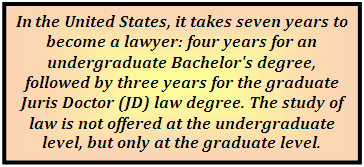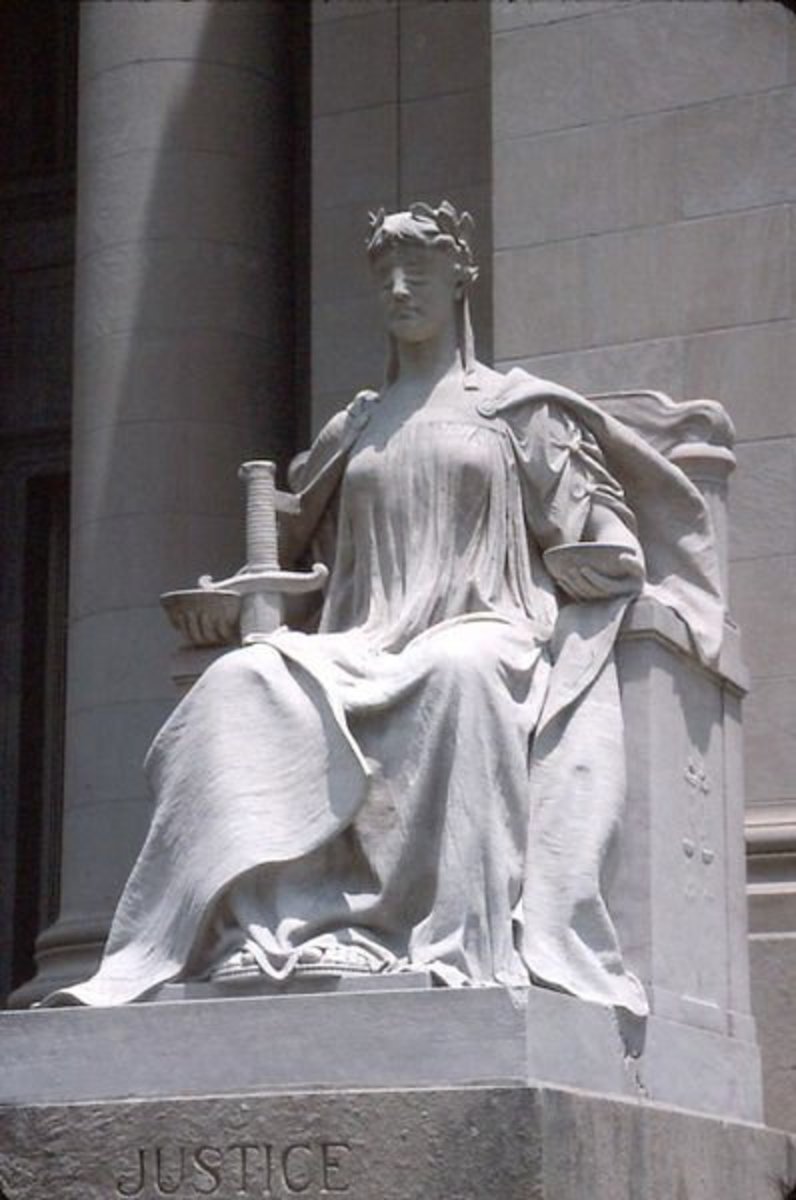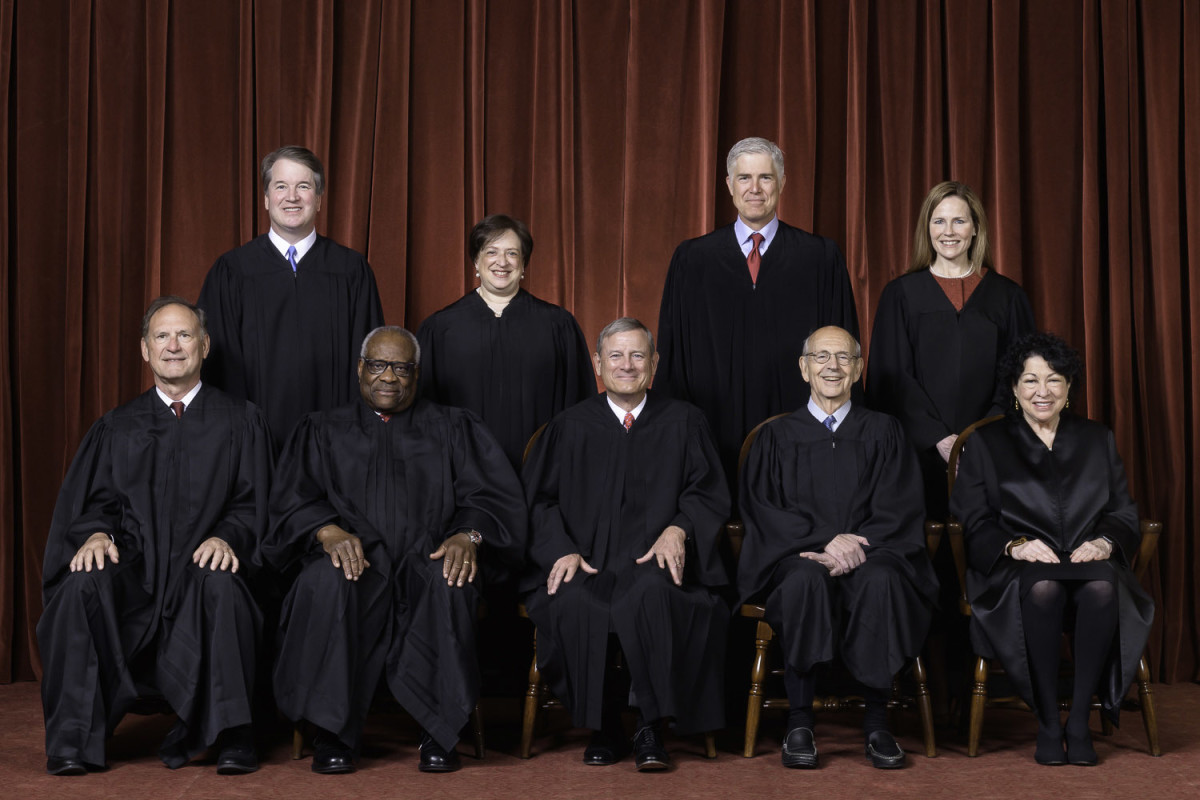How to become a lawyer in the United States


Becoming a lawyer in the United States
Studying law can be the beginning of a very lucrative career path. Reports show that over 70 percent of the world’s attorneys practice law in the United States; most of whom are graduates from one of the 185 law schools in America.
Like most other professions that are regarded as “elite”, the legal profession requires several years of intense studying and training.
If you have an interest in studying law in the United States, this article will outline for you the education and training that is required.
Undergraduate School
The three major skills that law students acquire by adept training are:
- Analytical skills
- Communication skills
- Analytical skills
Students can begin to develop these skills by majoring in natural sciences, social sciences or even engineering; however, the majority of aspiring lawyers study political science, economics and history at the undergraduate level.
During the junior year of undergraduate school, most students schedule and sit for the LSAT (Law School Aptitude Test).
During the senior year of undergraduate school, students are advised to apply to law schools that are ABA (America Bar Association) accredited. These schools ensure that academic performance, credentials and recommendations make for viable candidacy.
Note: Since entry into an ABA accredited law school is dependent on the undergraduate GPA score and the LSAT score, students are advised to choose an undergraduate major that they can excel at, rather than choosing a challenging major that may cause their GPA to suffer. (Most law schools do not factor the particular undergraduate area of study when choosing their yearly quota of students.)
The LSAT (Law School Aptitude Test)
The LSAT is an exam that is pre- requisite for students wishing to attend law school. The LSAT is a standardized test that is offered four times per year, at various locations throughout the United States, Canada, the Caribbean and some other countries.
The LSAT score provides a measure of acquired reading and verbal reasoning skills that accredited law schools use to assess applicants
180 is the perfect LSAT score. If students obtain substandard LSAT scores after their first attempt, they are advised to re- take the exam.
Students can register for the LSAT, and acquire LSAT practice tests via the Internet.
Law School
Once enrolled in law school, students complete a 3- year program that combines core courses, specialized courses and practical experience (many programs also include internships).
In the first year of law school, students typically take required basic law courses. At almost every law school students take the bulk of their required courses during the first year, and the remaining years are occupied by elective courses. Elective courses are chosen in specialized areas of law. Some of these include:
- Comparative Environmental Law
- Criminal Law
- Legal writing
- Patent Law
- Public Interest Law
- Securities regulation
- Torts
- The Law and Ethics
For many law students, the second year of law school is the busiest year. Apart from taking a full complement of classes, students are occupied interviewing for jobs, getting involved in student- run organizations and participating in externship programs with judges, prosecutor’s offices, or other governmental agencies.
During the third year of law school, students complete their elective courses and plan ahead for the bar exam.
The Bar Examination
Lawyers are required to pass the bar exam before practicing law. Although the bar exam varies from state to state, the most common bar exam that is administered is the Multistate Bar Examination (MBE). The MBE is a 2-day test that covers six areas of law, including constitutional and criminal law, torts, contracts, evidence and real property. Some states require that the Multistate Essay Examination (MEE) or the Multistate Performance Test (MPT) be taken as a supplement to the MBE. A state's bar exam might include questions on that specific state's laws, as well as federal and state taxation laws.
In addition to bar exams, all but four states require law graduates to complete the Multistate Professional Responsibility Examination (MPRE). This test is taken separately from the bar exam, and students may be able to take it prior to graduating from law school.
The Fitness Exam
After the bar exam, lawyers are subject to a fitness examination. This exam is basically meant to check up on what sort of a person the lawyer actually is. It is usually fairly intrusive and looks at all aspects of the lawyer’s life. Felonies, financial problems and even some forms of misdemeanors that occurred in the lawyer’s past could be serious impediments at this final stage, and could delay the lawyer’s career start.
After the fitness exam, some lawyers consider becoming a clerk for a judge or joining a private law firm. This helps them to gain necessary litigation experience and to build up their resume. U.S. Attorneys are generally hired three to six years after law school, after they have developed the necessary writing, research and litigation skills.
Note for International Students:

How to become a doctor in the United States
You can find information on "How to become a medical doctor in the United States" at Hubpages.com.







